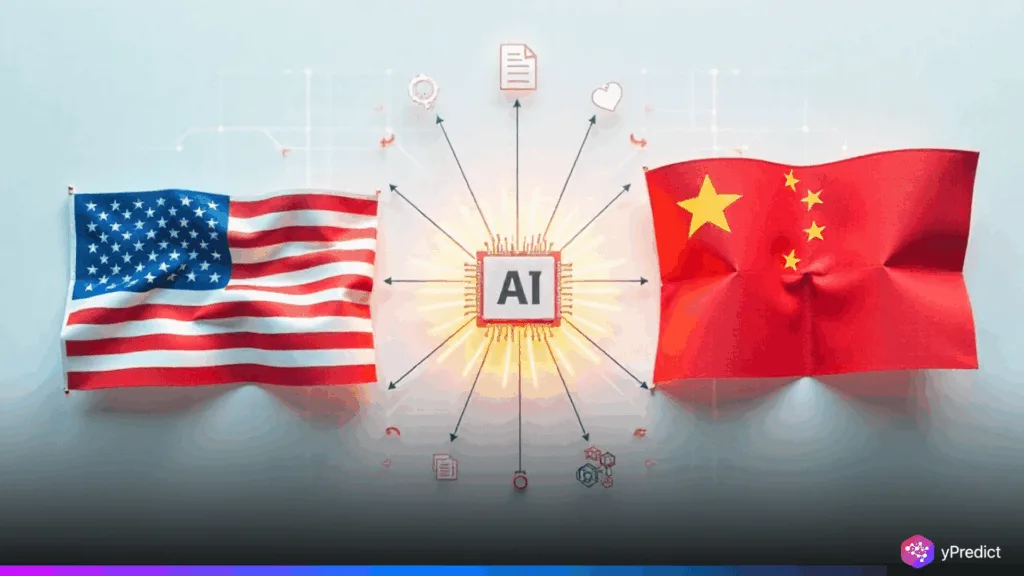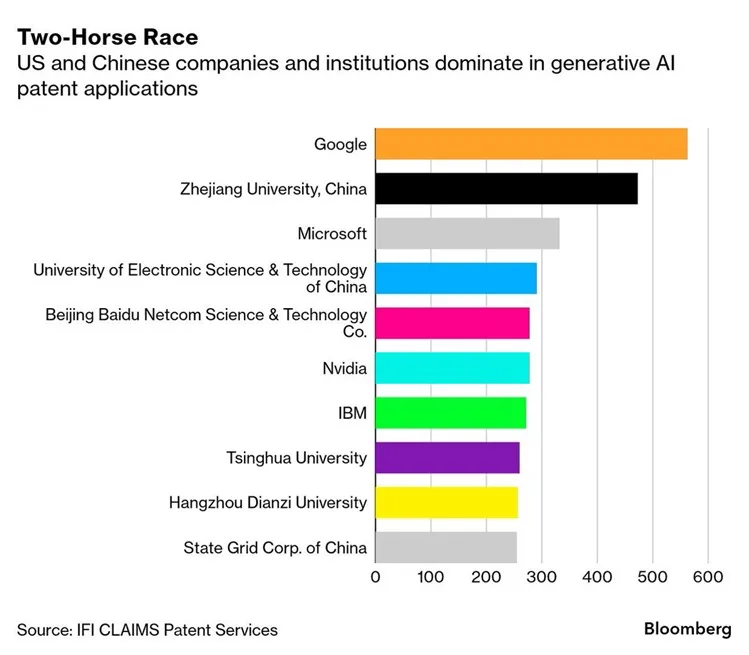
Google is leading the world in the escalating AI race with 560 applications for generative AI patents. Microsoft and Zhejiang University come next with about 310 and 480 filings, respectively. Other competitors with roughly 280 are IBM, Nvidia, Baidu, and UESTC. As a result, the image below illustrates an increase in patent applications as both nations compete for future leadership in AI research.

Who Dominates the Current Wave of AI Innovation?
As US and Chinese companies increase their patent filings, the AI race is picking up speed. Google’s 560 apps show that generative technologies are growing rapidly. Zhejiang University’s academic fervor demonstrates China’s strength in research. Additionally, Microsoft’s extensive investment is demonstrated by its 310 filings.
Universities and state-affiliated institutions influence the field in addition to individual businesses. China’s widespread mobilization is mirrored by UESTC and Baidu, each with approximately 295–280 filings. IBM and Nvidia also contribute to the US side with substantial filings. Thus, both industry and academia are now experiencing global innovation.
Exploring the Depth of Global Generative AI Patents
Different firms have different areas of focus; some focus on generative agents, multimodal systems, or language models. Google’s filing frenzy’s scope demonstrates its strategic scope. Google has 560 filings, Zhejiang has 480, and Microsoft has 310. Use a bar graph to compare filing counts. Other companies, such as IBM, Nvidia, and Baidu, each have 280.
Furthermore, this strong picture highlights the urgency of the AI race, as patent applications serve as both a warning. Each filing stakes a claim in developing domains such as autonomous agents, diffusion models, and LLMs as models diversify.
Predicting the Turning Points in Global AI Patent Growth
Patent filings are now the legal cornerstone of a competitive AI strategy. Next-generation models are built or licensed by offices around the world. Additionally, legal wrangling may be just as important to the AI race as research.
There will likely be more international filings, patent disputes, and licensing agreements in the future. Additionally, US tech giants and Chinese academic networks will both improve their portfolios. Thus, those with stronger intellectual property may influence AI’s business standards.
Generative AI Patents May Decide the Future of Technology
Generative AI patents are emerging as tools of influence and defenders of invention as the AI race picks up speed. Google has strategic clout due to its current lead. However, academic behemoths like Zhejiang University and Chinese institutional players could soon bridge the gap. Innovations and legal battles will both bring about changes in the field. Furthermore, developing model capabilities will be as important as navigating the global IP landscape. Ultimately, patents may influence not only the future of AI but also who defines it.






